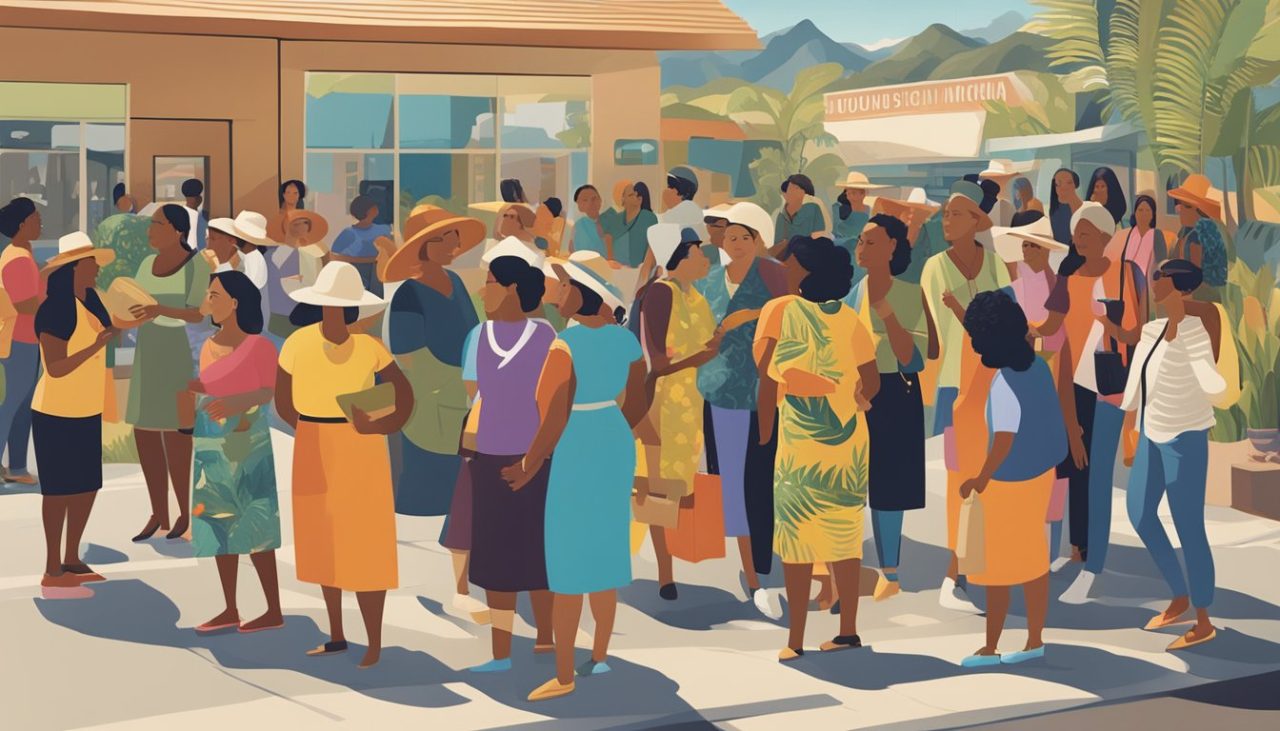Gender equality remains a cornerstone for building a sustainable future. Across the globe, cooperative movements are driving empowerment and fostering inclusive economic growth. Achievable, sustainable goals are accessible while ushering in and advocating for ecological imperatives. For both donors and community members, gender equality brings communities closure together. With over 3 million cooperatives worldwide, these organizations employ 10% of the global workforce, spanning agriculture, finance, and healthcare sectors.

The UNSDG#5 via Women’s history month and 2025 international year of cooperatives
In June 2024, the UN General Assembly declared 2025 as the International Year of Cooperatives previous articles expressed the social impact possibilities. This recognition highlights their role in advancing 60 – 80% of sustainable development goals. Cooperatives provide an additional platform for women to lead, innovate, and thrive. This helps in making them essential for achieving both equality and equity while fostering collective action.
As the world moves closer to 2030, gender equality is not just a goal but a necessity. It underpins all 17 sustainable development goals, ensuring a brighter, more equitable future for each everyone.

The UNSDG#5 via Women’s History Month & 2025 International Year of Cooperatives
The year 2025 is a landmark year for gender equality. It marks the 30th anniversary of the Beijing Declaration and the 50th International Women’s Day. These milestones highlight decades of progress and the ongoing fight for women’s rights.
Cooperatives are playing a pivotal role in this journey. The COPAC partnership is driving initiatives to position them as accelerators for sustainable development. Their multi-agency strategy focuses on empowering women through leadership roles and economic opportunities.
In developing nations, women hold 63% of cooperative leadership roles. This statistic showcases the transformative power of collective action. It also underscores the importance of cooperatives in achieving gender parity.
Major events in 2025, such as CSW69 and the ECOSOC Development Cooperation Forum, will further amplify these efforts. These platforms will foster dialogue, share success stories, and inspire new initiatives.
| Milestone | Significance |
| 30th Anniversary of Beijing Declaration | Reflects on progress since the 1995 Platform for Action |
| 50th International Women’s Day | Celebrates global achievements in gender equality |
| COPAC Initiatives | Drives cooperative development as SDG accelerators |
These efforts are not just about celebrating milestones. They are about creating a future where every woman has the opportunity to lead, innovate, and thrive.
Why Gender Equality Matters for Sustainable Development
Empowering women and girls unlocks untapped potential for sustainable growth. When equality is prioritized, communities thrive, economies expand, and innovation flourishes. Gender parity is not just a moral imperative but an economic necessity.

The Stark Reality of Gender Inequality Today
Despite progress, disparities remain stark. Women spend 2.5 times more hours on unpaid care work than men. Globally, only 26.9% of parliamentary seats are held by women. At current rates, achieving management parity could take 176 years.
In corporate leadership, the gap is glaring. Fewer women lead Fortune 500 companies than men named John. These challenges highlight the urgent need for systemic change.
How UNSDG#5 Fits into the Global Agenda
This goal targets ending harmful practices like female genital mutilation and ensuring digital inclusion. It also aims to boost economic participation. McKinsey estimates that closing the gender gap could add $28 trillion to global GDP by 2025.
Climate change disproportionately affects women farmers, making intersectional approaches vital. UN Women’s theme, “Rights. Equality. Empowerment,” underscores the importance of collective action.
“Equality is not just a goal; it’s the foundation for a sustainable future.”
By addressing these challenges, we can create a world where every woman and girl has the opportunity to thrive.

Cooperatives: A Catalyst for Women’s Empowerment
Cooperatives are transforming lives by empowering women across the globe. These organizations foster growth and create opportunities for women to lead and innovate. By addressing systemic barriers, they play a vital role in achieving development goals and building resilient communities.
The Global Reach of Cooperatives
From Kenya to Costa Rica, cooperatives are making a difference. In Kenya, women-led cooperatives manage 65% of agricultural activities. In the EU, 22% of renewable energy projects are cooperative-driven. These examples highlight their global impact.
Bangladesh showcases another success story. Over 1.5 million women work in cooperative healthcare services, improving access to medical care. Such initiatives demonstrate how cooperatives empower women while addressing critical needs.
Sectors Where Cooperatives Drive Change
Cooperatives operate in nine key sectors, including energy, housing, and education. They provide women with leadership roles and economic opportunities. For instance, women-led cooperatives have restored over 800,000 hectares of farmland, boosting climate resilience.
In Costa Rica, cooperative-friendly policies have created a model for others to follow. These efforts ensure that women are at the forefront of sustainable development. By fostering collaboration, cooperatives are shaping a more equitable future.
“When women lead, communities thrive. Cooperatives are the bridge to this transformation.”
Women’s History Month: Celebrating Progress, Demanding More
Celebrating progress while demanding more, women history month highlights strides toward equality. This annual observance honors the achievements of leaders and underscores the need for systemic change.



Women’s history month
Since 2015, there has been a 200% increase in women-led cooperatives globally. These organizations play a vital role in promoting gender equality and economic inclusion. From Ghana’s cocoa cooperatives to Iceland’s energy collectives, women are driving transformative initiatives.
Despite progress, gaps persist. In 39 countries, daughters still face restrictions on inheritance rights. The UN Secretary-General has warned about regression in women’s rights, emphasizing the urgency of collective action.
- Six countries now have over 50% female parliamentary representation, setting a benchmark for others.
- The 2025 theme, “For ALL Women and Girls: Rights. Equality. Empowerment,” reflects a commitment to inclusivity.
- Landmark events like CSW69 will focus on accelerating progress in the coming years.
Women’s History Month is not just a recognition through celebration but a call to action. It reminds us that while much has been achieved, there is still work to be done to ensure equal rights for all.
How to Take Action for Gender Equality
Taking meaningful steps toward equality starts with individual and collective action. Everyone can contribute to creating a more inclusive world. This can be supported through initiatives and advocating for systemic change. Whether through local efforts or global campaigns, small actions can lead to significant impact.
Supporting Cooperatives in Your Community
Cooperatives are powerful vehicles for driving horizontal growth and empowering women. Start by identifying ethical cooperatives in your area. Look for organizations that prioritize fair wages, transparent governance, and inclusive leadership.
Here’s a quick guide to vetting cooperatives:
- Check for fair wage policies and equal opportunities.
- Review governance structures for transparency.
- Ensure they provide access to resources and education.
- Look for success metrics, such as community impact.
- Engage with members to understand their experiences.
Investing in cooperatives not only supports local communities but also fosters sustainable growth. For example, gender-lens investing in cooperative ventures has shown a 1:8 return on investment, proving their economic and social value.
Advocating for Policy Changes
Systemic change requires advocacy and policy reform. Focus on legislative priorities like paid family leave and digital access initiatives. These policies can significantly improve women’s economic participation and overall well-being.
Here are actionable steps to advocate for change:
- Join UN Women’s advocacy networks to amplify your voice.
- Support local campaigns for paid family leave and childcare services.
- Promote digital inclusion programs to bridge the gender gap in technology.
- Engage with policymakers to prioritize gender equality in legislation.
- Encourage youth participation through UN’s Youth2030 strategy.
“When we invest in women, we invest in the future of our communities and the world.”
By taking these steps, individuals can contribute to a more equitable and sustainable future. Together, we can drive meaningful change and ensure equality for all.

Conclusion
Building a future rooted in equality requires collective effort. Despite progress, challenges persist, demanding urgent action. Cross-sector collaboration is key to driving meaningful change and ensuring empowerment for all.
By 2025, a 15% increase in women’s leadership roles within cooperatives is achievable. This growth will foster economic justice and amplify voices globally. Development thrives when women lead, innovate, and shape policies.
To contribute, focus on three steps: education, investment, and amplification. Support initiatives that prioritize gender equality and advocate for inclusive policies. Together, we can create a world where everyone thrives.
Looking ahead to 2030, a vision of a gender-equal society is within reach. Let’s unite to turn this vision into reality, ensuring a brighter, more equitable future for all.

Key Takeaways
- Cooperatives employ 10% of the global workforce, driving economic inclusion.
- the UN has declared 2025 the International Year of Cooperatives.
- Gender equality and omni-demographic equity are foundational for achieving all sustainable development goals.
- Cooperatives empower women to lead and innovate in various sectors.
- Over 3 million cooperatives operate worldwide, socially impacting 1.2 billion members.








